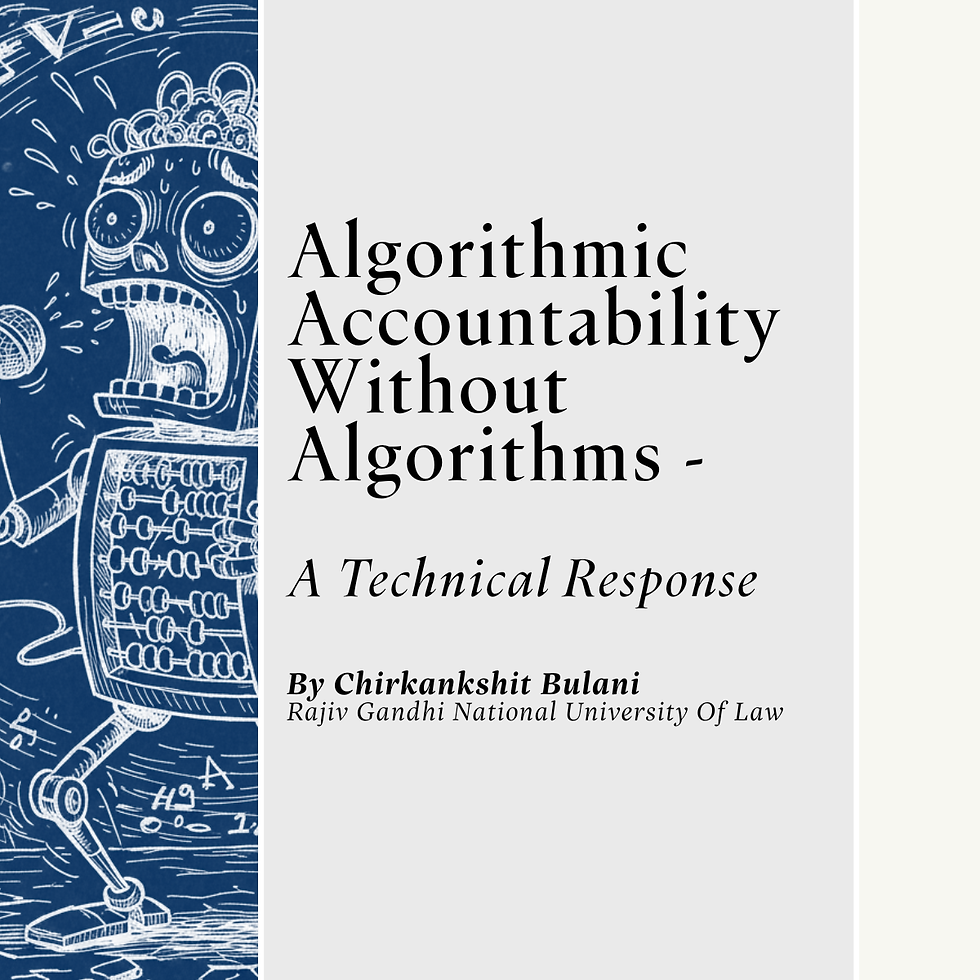Online Shopping and violation of right to carry on trade in India
- The Legal Journal On Technology
- Jun 27, 2022
- 3 min read
This article has been written by Priyansh Bharadwaj, a second year student at DSNLU, Jabalpur

With the dawn of the epoch of smartphone and internet, online shopping has become the daily routine of most of the users of the smartphone. However, the recent reports suggest that unregulated form of online trading is being conducted in such a manner that rights of the small traders is being violated and they are running out of their business
The Universal Declaration of Human Rights was introduced in 1948, with the objective to grant universal basic human rights to the persons across the globe and no one has the right to infringe those basic rights granted to individuals by the charter.
Article 23 of the UDHR declares that “Everyone has the right to work, to free choice of employment, to just and favourable conditions of work and protection against unemployment.” The article manifestly makes it clear that a person should not only have the right to be in a particular work but also there must be fair and reasonable opportunity to be provided in the employment to the person.
In India, there is a long tussle that is going on between the brick and mortar traders and online platforms. As per the CAIT, the leading trader’s organisation, E-commerce companies like Amazon and Flipkart have a very large dominance in India’s retail market. These companies in order to expand their network effect are engaging in the anti-competitive practice of predatory pricing in order to drive the small traders out of the business. As per CAIT, there is a decrease of more than 30 percent in the brick and mortar sales after the arrival of the E-Commerce companies and many small traders have been forced to shut down their businesses as they cannot compete with these platforms on the basis of price. Thus, the unchecked prevalence of predatory pricing is driving the small traders towards the constant fear of unemployment.
These platforms engage in the practice of discriminatory preference on their platforms. For example, there are more than one million traders that are listed on Amazon, yet Cloudtail, a seller listed on Amazon and jointly owned by Amazon, accounted for more than 40 percent of sales that happened on Amazon Platform. The criteria used by the algorithms of these platforms to show a seller as a preferred seller is opaque and thus, there is no definite condition as per which a seller is shown as a preferred seller. Moreover, the E-commerce sites are promoting their own brands in lieu of the others brands, even though they claim to be just a neutral intermediary between seller and buyer. This testifies that the traders are not being provided “just and favourable conditions” for the growth of their trade in India.
The E-commerce platforms are using the data that they get during the purchase of the products through their platforms to boost the sale of their own products and the algorithms are also designed in such a way that during searches, the products manufactured by these platforms display first to the customers. For example, Amazon followed the “measurement of John Miller shirts” down to neck circumference and sleeve length and manipulated the search results that were displayed to the consumers with the sole aim to boost the sale of its own products at the cost of the seller. The prevalence of such unfair practices is violating the right to employment of traders as they cannot compete freely and there is constant fear that these E-commerce companies may employ some other technique to dominate the market by applying some unfair and unethical trade practices.
The continuous violation of the right to employment and freedom to carry on trade of the traders in India needs to be stopped to save the Indian retail sector from becoming an oligopoly and it is imperative for the Indian Government to frame regulation or law to protect the human rights of the traders as about more than 10 percent of Indians livelihood is dependent on the retail sector.









Comments